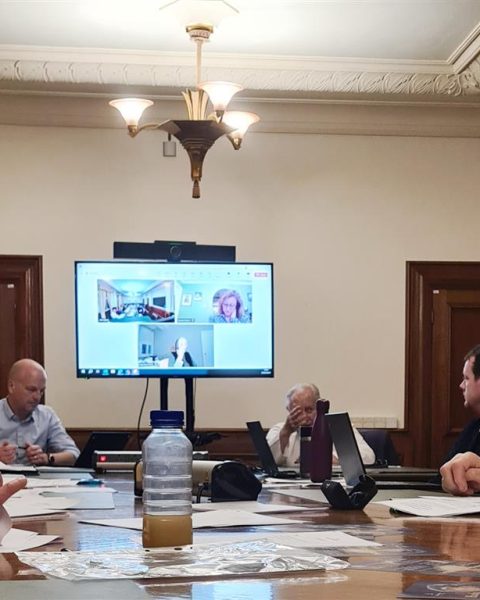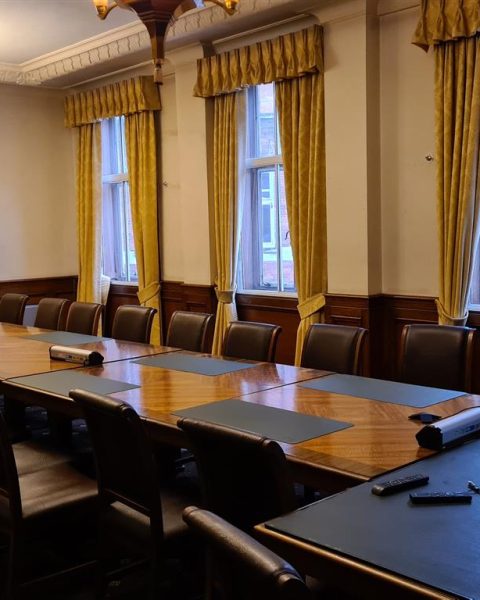A planning forum meeting was organised by the Council on Monday 3rd November 2014, 17 months after the last one. Cllr Sarah McDermott, new chair of the Planning Application Committee (PAC) decided to resurrect this meeting, similar to the wish of her predecessor, Cllr Cuff, who eventually abandoned it in July 2013.
1- Scheme of Delegation
The Council has revised its planning application rules and decided that from this month any application with less than 3 comments (from different households/addresses) will no longer be presented before the Planning Application Committee. Proposals recommended for refusal will only come before the committee if they pass some threshold (10 units for residential).
Residents who want a specific proposal to be discussed will have to ask their ward Councillor, who will then ask the Chair of the PAC. They could refuse, although we were told it was unlikely (sic!).
So not only Wandsworth Council is the only Council in London refusing any delegation/representation at the Planning Application Committee, but now they have also decided to restrain even more the possibilities of objections.
2- Proposed changes in Planning Legislation – Permitted Development
The government is planning a number of changes in the planning legislation in order to make possibilities for change of use and conversions from business to residential even easier.
The new Permitted Development rights were introduced by the government in May 2013. Key changes included the permitted change of use from office (B1 use class) to residential (C3 use Class). As it was meant to expire on 30th May 2016 the government is also planning to make the change permanent.
Wandsworth Council responded to this consultation with a 38 page document, listing a series of concerns. Although few schemes have been implemented under the new rule, Council’s figures show that currently it could represent a loss in offices of 45,000 sqm (number of residential units in pre-approval: >600). More alarming, they have noticed that it often concerns buildings currently occupied as offices (and not empty offices only).
Following the publication of the changes to permitted development rights the Council made a few bids to get exemptions without success, even for Putney. Nine Elms was granted exemption following a bid from the GLA.
The Council could have chosen to restrict permitted changes of use from office to residential by making an Article 4 direction as several other Boroughs did (this could apply to a specific area, e.g. Putney Town Centre or the whole Borough). Although the Council acknowledged (Strategic Planning and Transportation Overview and Scrutiny Committee – 24th June 2013) that in June 2013 some outer London boroughs were looking at making such directions, they decided to abstain in fear of being subject to possible claims for compensation. We saw later that Islington challenged the Secretary of States and got an exemption for a large part of the borough, Croydon argued of its origin back in the 50s as an office location in its centre, Brighton confirmed an exemption affecting its centre, etc.
The officer in charge argued that as the rule is likely to change in the coming months, there will be a need for the Councils which got an Article 4 Direction, to ask for a new one.
In other words, as Wandsworth Council did nothing, they won’t need to re-apply for something. The loss of offices (with a potential of getting some money through new developments) seemed more appealing than the risk of being subject to compensation if protecting the areas.
3- Local Plan Consultation
Following the rejection of the local plan submission by the government inspector (see HERE), a new consultation is taking place and representations need to be submitted before the 28th November 2014.
4 – Further Supplementary Planning Documents
The Council is also in the process of reviewing the Lombard Road riverside area. The current planning documents say (Site Specific Allocation Document p174):
Tall buildings: In accordance with Core Strategy Policy IS3d, tall buildings in this location are likely to be inappropriate. In accordance with DMPD Policy DMS4, the height at which a development in this location will be considered to be tall is 9 storeys.
The Council is proposing now to designate the area as a focal point.
Of course it is just a coincidence that several developments are proposed for this area, with one tower of 28 storeys (and 14 storeys for Gwynne Road, a few yards behind), in complete contradiction with the planning policies. Any suggestion that the Council might actually try to fit the developers’ needs with a retrospective change was denied (it’s a “framework” apparently).
Questions
A member of the forum told us that according to their own survey, trying to identify who was actually occupying the new Riverside developments, they found 1/3 main residence, 1/3 “pied a terre” and 1/3 used only as investment shells. The Council said they have not done such survey on the riverside developments and their own figures don’t show such empty occupancy rate.
Regarding a question on the widening gap between the planning policies and the current granted applications, the Council responded that “the Planning Application Committee has to consider the context and balance between good and harm“.
Disclaimer: Cyril Richert was representing the Clapham Junction Action Group at the Council’s meeting















